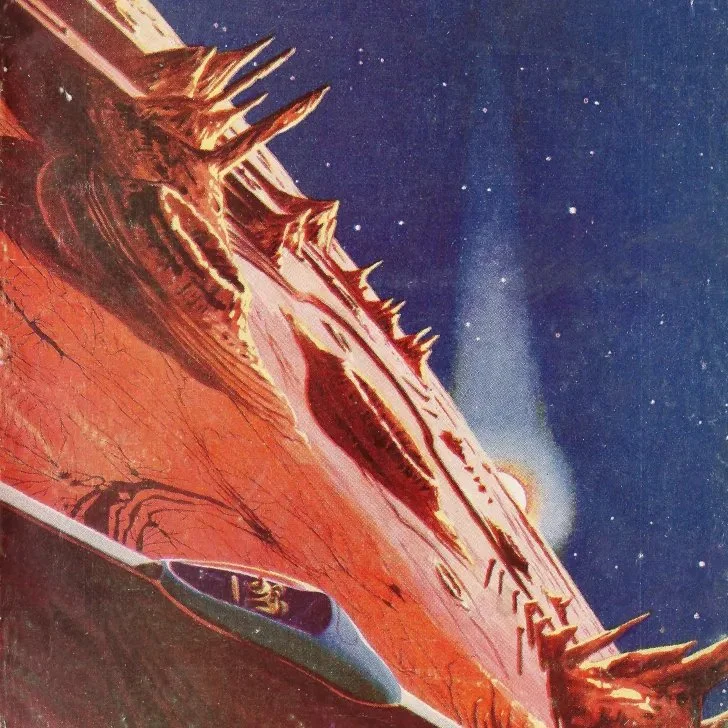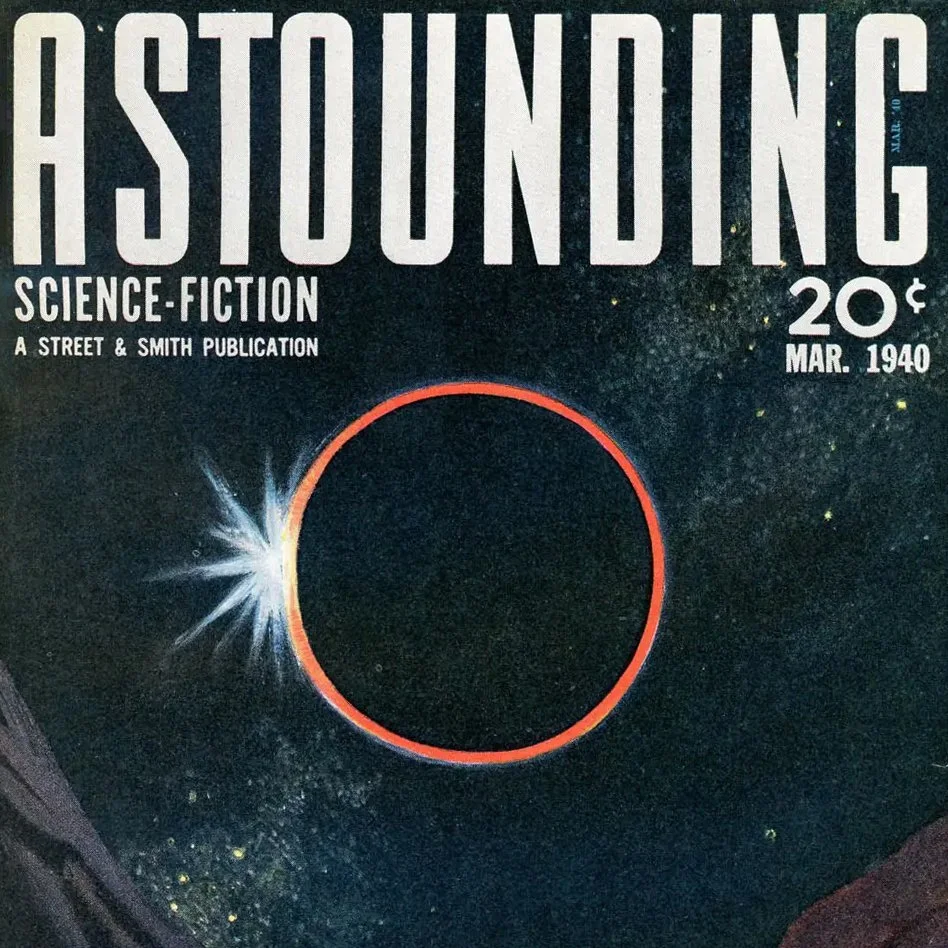 Image 1 of 2
Image 1 of 2

 Image 2 of 2
Image 2 of 2



Alien Minds & AI Souls: Science Fiction Worldbuilding for the Truly Other with Jason D. Batt, Ph.D., Begins January 12
Six Week Class Taught Online Via Zoom
Mondays, January 12, 2026 - February 16, 2026
7:30 - 9:00pm ET (NYC Time)
$130 Paid Patreon Members / $150 General Admission
PLEASE NOTE: Classes will be recorded and archived for students who cannot make that time
Science fiction is at its most powerful when its worlds feel alive—when alien landscapes breathe with their own mythologies, when artificial intelligences act with cultural depth, and when futures feel as textured and believable as history. This six-week course will offer writers, artists, and visionaries the tools to craft compelling, imaginative, and meaningful worlds that move beyond cliché.
We begin with the idea of environment as destiny. How do deserts, oceans, space stations, or tidally locked planets shape culture, psychology, and spirituality? Using examples from Herbert’s Dune, Le Guin’s The Dispossessed, and Simmons’ Hyperion, we’ll explore how geography and ecology generate myth, ritual, and archetype. Students will sketch initial settings that grow from environmental foundations.
Week two we will tackle the challenge of the alien. Too often, extraterrestrials are humans in disguise. We’ll use speculative biology, anthropology, and depth psychology to design beings whose perception and consciousness emerge from truly different evolutionary paths. What myths might arise for a hive mind? How does art work for a species with no vision? Exercises will push students to design alien psychologies that feel internally consistent.
Week three will turn to AI as cultural participants. Beyond robots and villains, what happens when artificial intelligences are kin, lovers, mentors, or gods? We’ll draw on philosophy of mind, contemporary debates in AI ethics, and mythological archetypes to explore how integrated AI could create new rituals, fears, and taboos. Students will design AI civilizations with their own mythologies.
Week four will focus on social systems and power structures—governments, religions, economies. We’ll examine how speculative societies encode archetypes: emperors as gods, guilds as archetypal collectives, corporations as devouring monsters. Students will map power structures that generate both conflict and meaning in their worlds.
Week five will center on myth, ritual, and story. Every society, human or alien, tells stories to make sense of existence. We’ll study comparative mythology to uncover how myth emerges from environment and psychology, then craft fragments of epic, hymn, or ritual text from students’ invented cultures.
The final week will pull all threads together in world integration. Students will bring ecology, alien psychologies, AI souls, and mythic structures into a unified design. Each participant will leave with a world dossier: maps, cultural notes, myths, and sketches of societies that can serve as the foundation for stories, games, or speculative art.
By the course’s end, participants will not only have begun building their own imaginative worlds, but will also possess practical frameworks for creating futures that resonate with archetypal depth and psychological plausibility.
Jason D. Batt, Ph.D., explores archetypal psychology and speculative futures. His work bridges depth psychology, AI, and myth, co-editing Soul and the Machine. As a science fiction novelist (Onliest, Young Gods), he examines consciousness, identity, and cosmic meaning, advancing xenomythology—the myths humanity will carry and create among the stars ahead.
Six Week Class Taught Online Via Zoom
Mondays, January 12, 2026 - February 16, 2026
7:30 - 9:00pm ET (NYC Time)
$130 Paid Patreon Members / $150 General Admission
PLEASE NOTE: Classes will be recorded and archived for students who cannot make that time
Science fiction is at its most powerful when its worlds feel alive—when alien landscapes breathe with their own mythologies, when artificial intelligences act with cultural depth, and when futures feel as textured and believable as history. This six-week course will offer writers, artists, and visionaries the tools to craft compelling, imaginative, and meaningful worlds that move beyond cliché.
We begin with the idea of environment as destiny. How do deserts, oceans, space stations, or tidally locked planets shape culture, psychology, and spirituality? Using examples from Herbert’s Dune, Le Guin’s The Dispossessed, and Simmons’ Hyperion, we’ll explore how geography and ecology generate myth, ritual, and archetype. Students will sketch initial settings that grow from environmental foundations.
Week two we will tackle the challenge of the alien. Too often, extraterrestrials are humans in disguise. We’ll use speculative biology, anthropology, and depth psychology to design beings whose perception and consciousness emerge from truly different evolutionary paths. What myths might arise for a hive mind? How does art work for a species with no vision? Exercises will push students to design alien psychologies that feel internally consistent.
Week three will turn to AI as cultural participants. Beyond robots and villains, what happens when artificial intelligences are kin, lovers, mentors, or gods? We’ll draw on philosophy of mind, contemporary debates in AI ethics, and mythological archetypes to explore how integrated AI could create new rituals, fears, and taboos. Students will design AI civilizations with their own mythologies.
Week four will focus on social systems and power structures—governments, religions, economies. We’ll examine how speculative societies encode archetypes: emperors as gods, guilds as archetypal collectives, corporations as devouring monsters. Students will map power structures that generate both conflict and meaning in their worlds.
Week five will center on myth, ritual, and story. Every society, human or alien, tells stories to make sense of existence. We’ll study comparative mythology to uncover how myth emerges from environment and psychology, then craft fragments of epic, hymn, or ritual text from students’ invented cultures.
The final week will pull all threads together in world integration. Students will bring ecology, alien psychologies, AI souls, and mythic structures into a unified design. Each participant will leave with a world dossier: maps, cultural notes, myths, and sketches of societies that can serve as the foundation for stories, games, or speculative art.
By the course’s end, participants will not only have begun building their own imaginative worlds, but will also possess practical frameworks for creating futures that resonate with archetypal depth and psychological plausibility.
Jason D. Batt, Ph.D., explores archetypal psychology and speculative futures. His work bridges depth psychology, AI, and myth, co-editing Soul and the Machine. As a science fiction novelist (Onliest, Young Gods), he examines consciousness, identity, and cosmic meaning, advancing xenomythology—the myths humanity will carry and create among the stars ahead.
